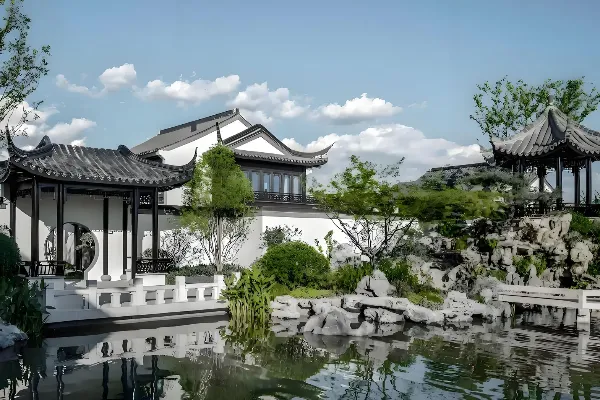
Suzhou gardens represent the pinnacle of Chinese classical gardening, embodying the essence of Jiangnan landscape art. Among 60+ well-preserved classical gardens, 9 including the Humble Administrator's Garden and Lingering Garden are UNESCO World Heritage Sites, honored as "Mother of Oriental Gardens".
History & Culture
Historical Origins
- Development: Originated in Spring-Autumn period, flourished in Song-Yuan, peaked in Ming-Qing (2,500+ years)
- Golden Age: 200+ private gardens during mid-Ming to Qianlong reign
- UNESCO Status: First batch listed as World Heritage in 1997
Cultural Features
- Literati Gardens: Integration of poetry, painting and philosophy
- Reclusive Culture: "Mountain forest in city" reflects scholars' retreat ideals
- Gardening Techniques: Perfect harmony of rockeries, water, architecture and plants
Artistic Characteristics
Design Principles
- Miniaturization: Vast nature condensed into small spaces
- Scenic Transitions: Continuous view changes through corridors and lattice windows
- Framed Views: Skillful use of doors/windows to frame distant scenery
Key Elements
- Rockeries: Taihu stones arranged as "man-made yet divinely natural" hills
- Water Features: Central ponds evoking "oceans in a spoonful"
- Architecture: Pavilions harmoniously blending with nature
Representative Gardens
Four Great Gardens
- Humble Administrator's Garden: Largest (5.2ha), water scenery masterpiece
- Lingering Garden: Exquisite architecture with prized Cloud-Capped Peak rock
- Master-of-Nets Garden: Compact elegance, famous for night performances
- Lion Grove Garden: Renowned for rockery maze, visited 6 times by Qianlong Emperor
Other Classics
- Canglang Pavilion: Oldest garden with "Blue Wave" water theme
- Mountain Villa with Embracing Beauty: Masterpiece rockery by Ge Yuliang
- Garden of Cultivation: Best-preserved Ming garden for literati gatherings
Visitor Experiences
Special Programs
- Night Tours: Kunqu opera performances at Master-of-Nets Garden
- Expert Lectures: Gardening art explanations by specialists
- Workshops: Bonsai making, stone rubbing etc.
Seasonal Highlights
- Spring: Crabapple and peony blooms (Mar-May)
- Summer: Lotus Festival at Humble Administrator's Garden (Jul-Aug)
- Autumn: Osmanthus and chrysanthemum displays (Sep-Nov)
Practical Information
Opening Hours
- Peak Season (Apr-Oct): 07:30-17:30
- Off Season (Nov-Mar): 07:30-17:00
- Night Garden: Master-of-Nets 19:30-22:00 (reservation required)
Tickets
- Humble Administrator's Garden: Peak ¥90, Off ¥70
- Lingering Garden: Peak ¥55, Off ¥45
- Combo Ticket: Peak ¥180 for 4 gardens (valid 2 days)
Transportation
- Humble Administrator's Garden: Metro Line 4 Beisita Station (10min walk)
- Lingering Garden: Metro Line 2 Shilu Station (15min walk)
- Buses: Tourist Lines 1/2 cover major gardens
Tips
- Avoid 10:00-15:00 on weekends/holidays
- Pre-study garden history enhances experience
- Wear comfortable shoes for cobbled paths
- Allocate 1.5-2 hours per garden
